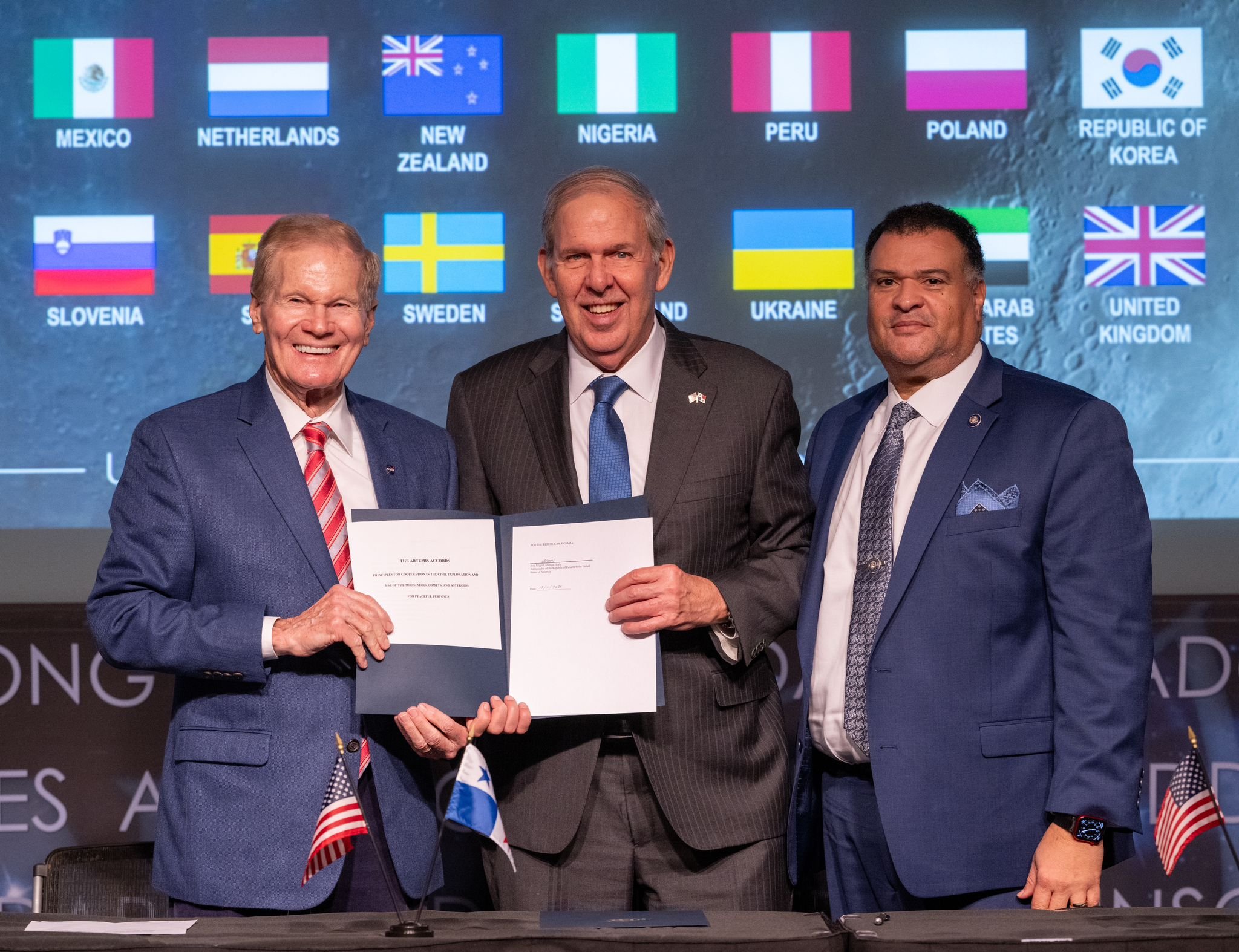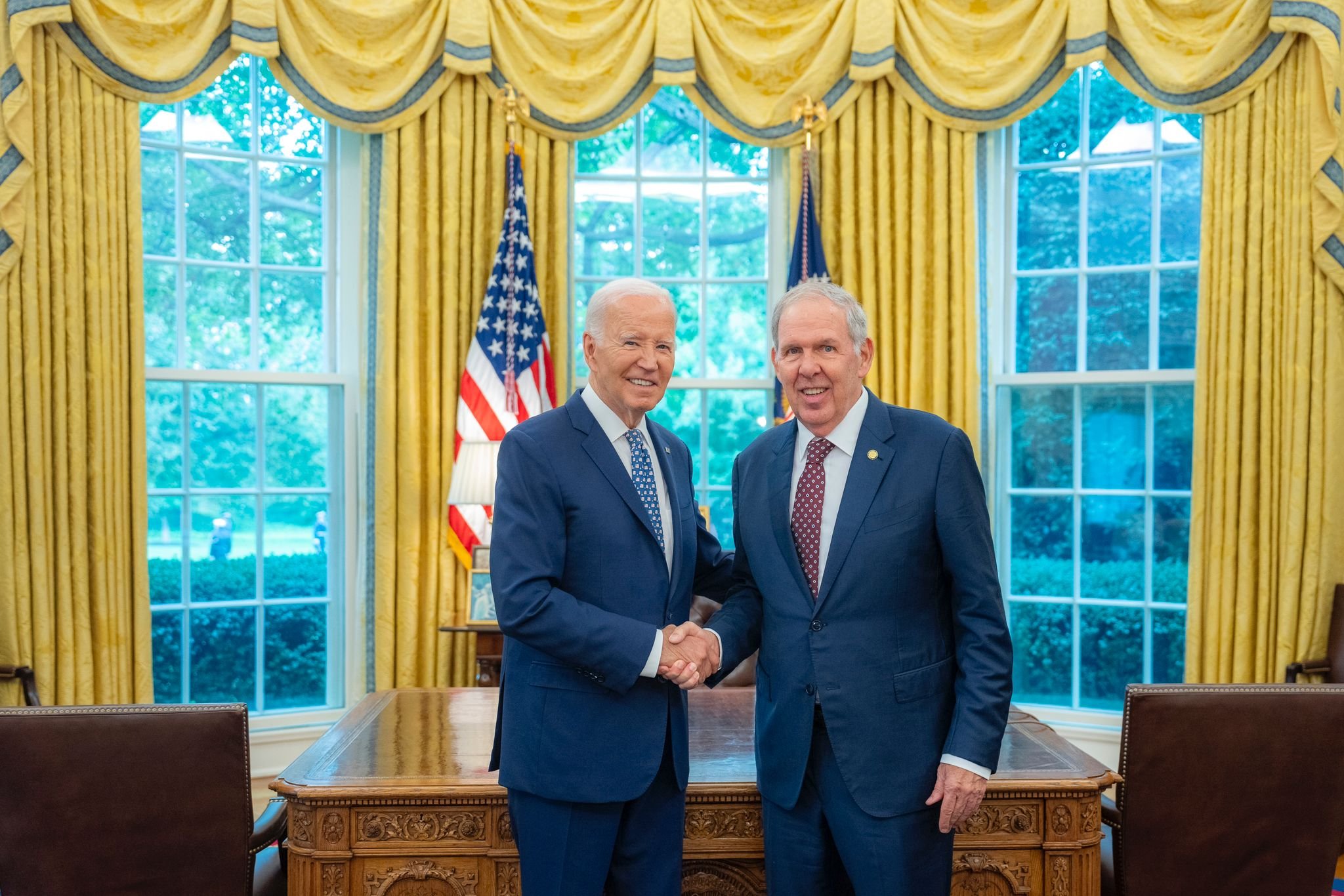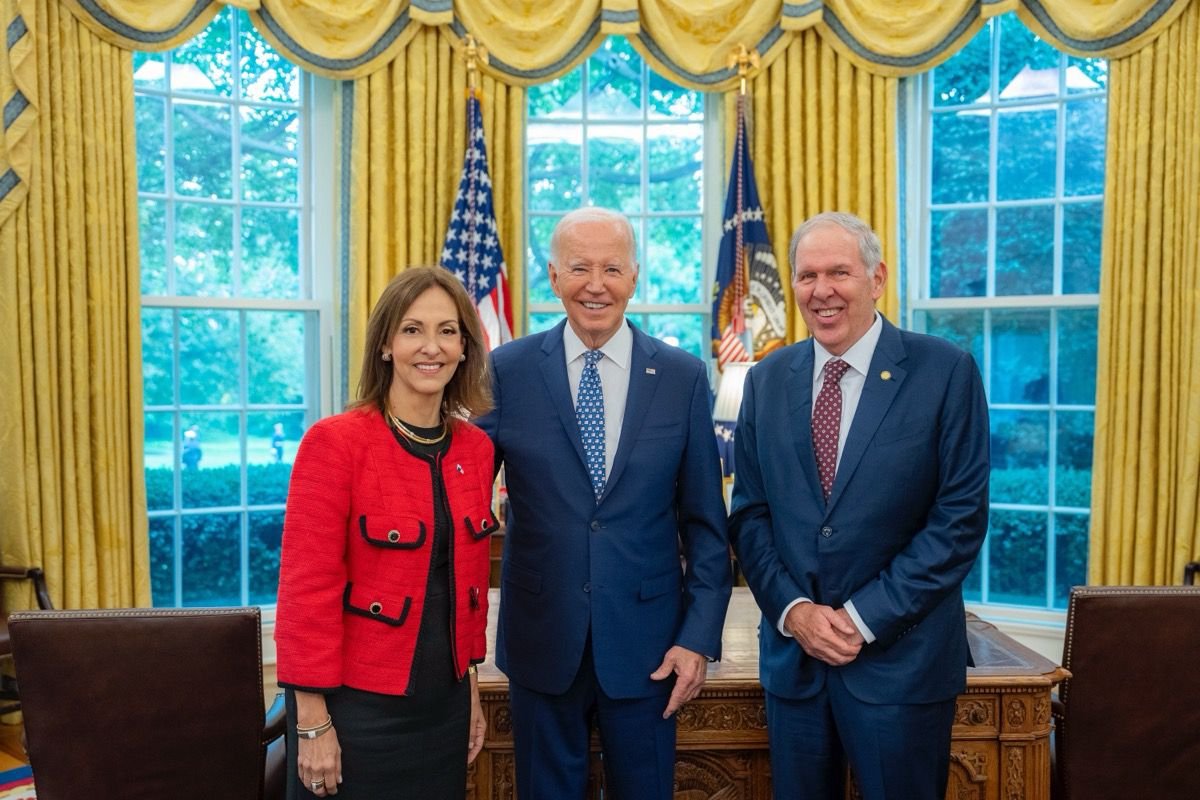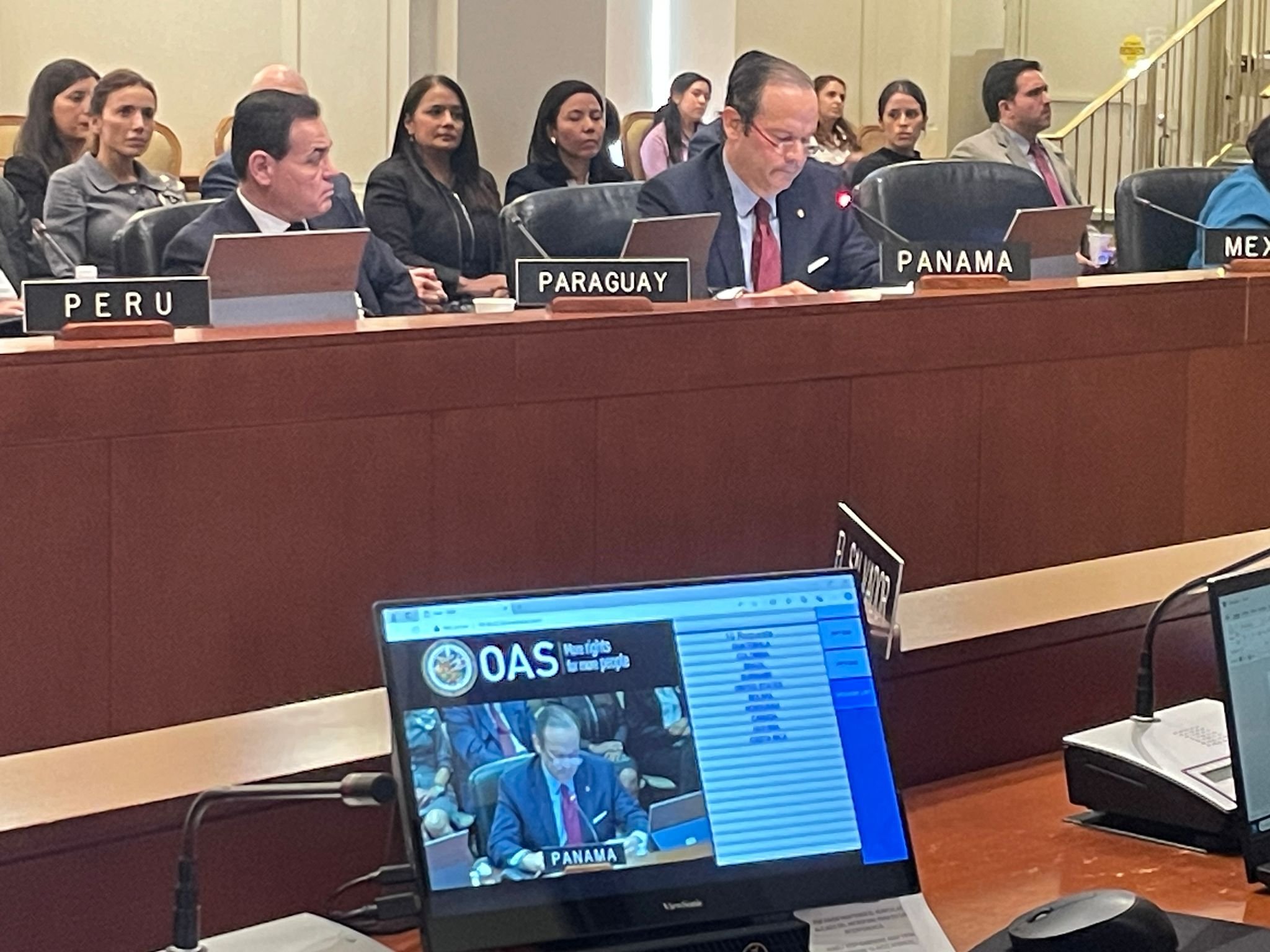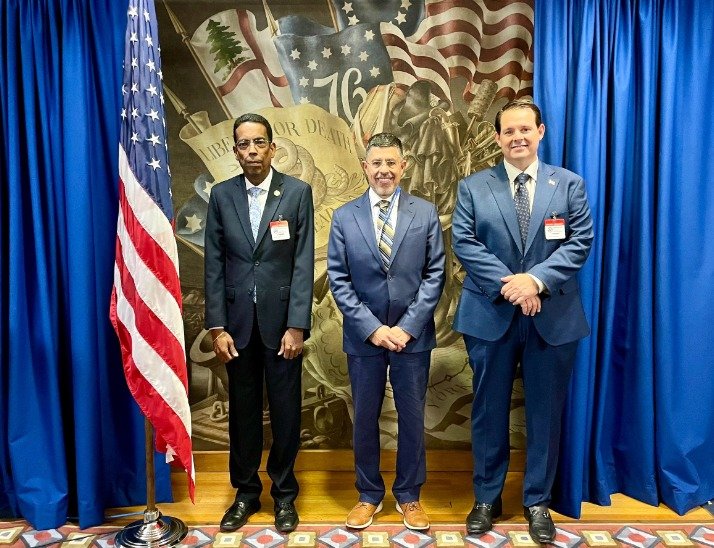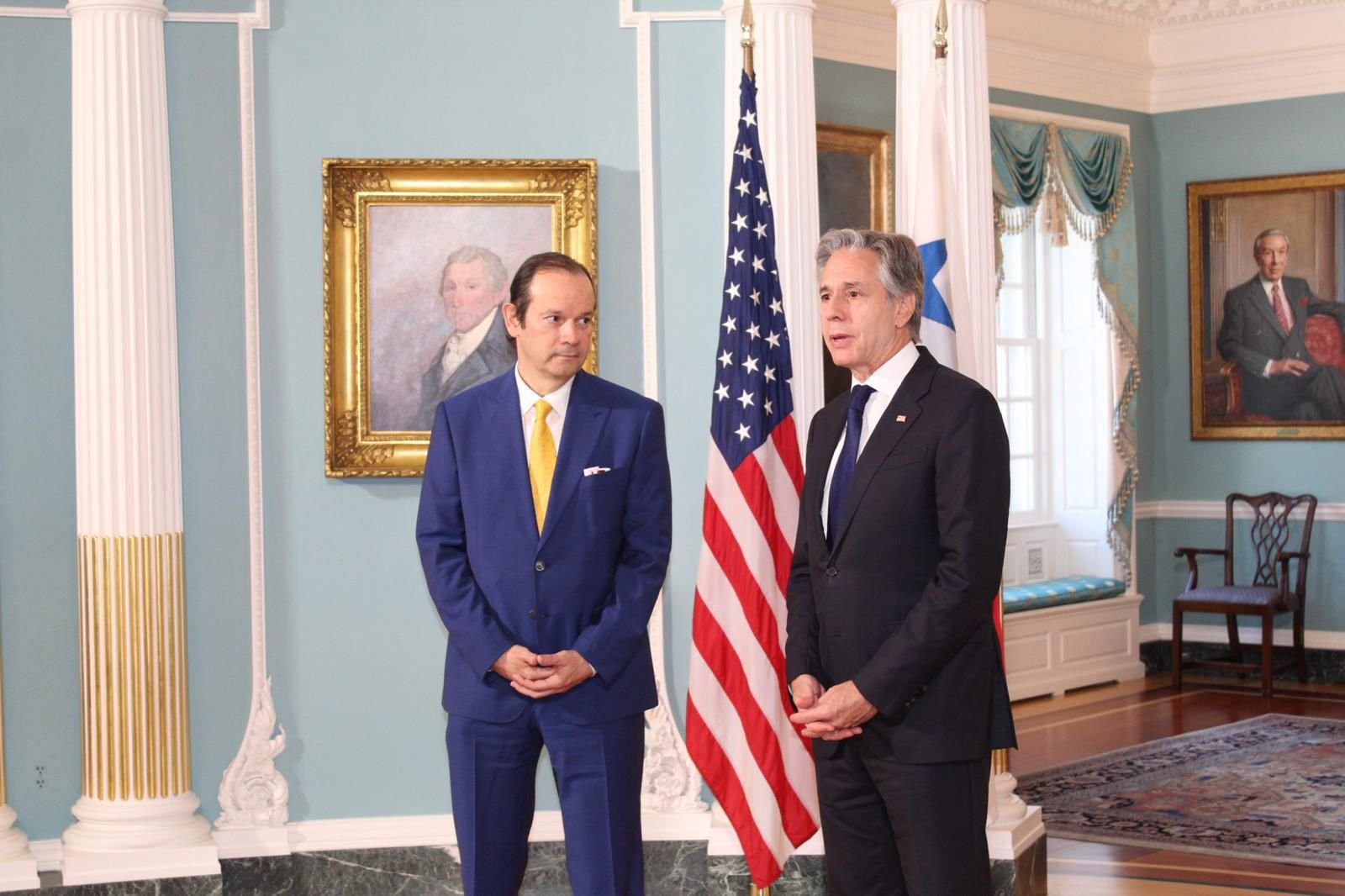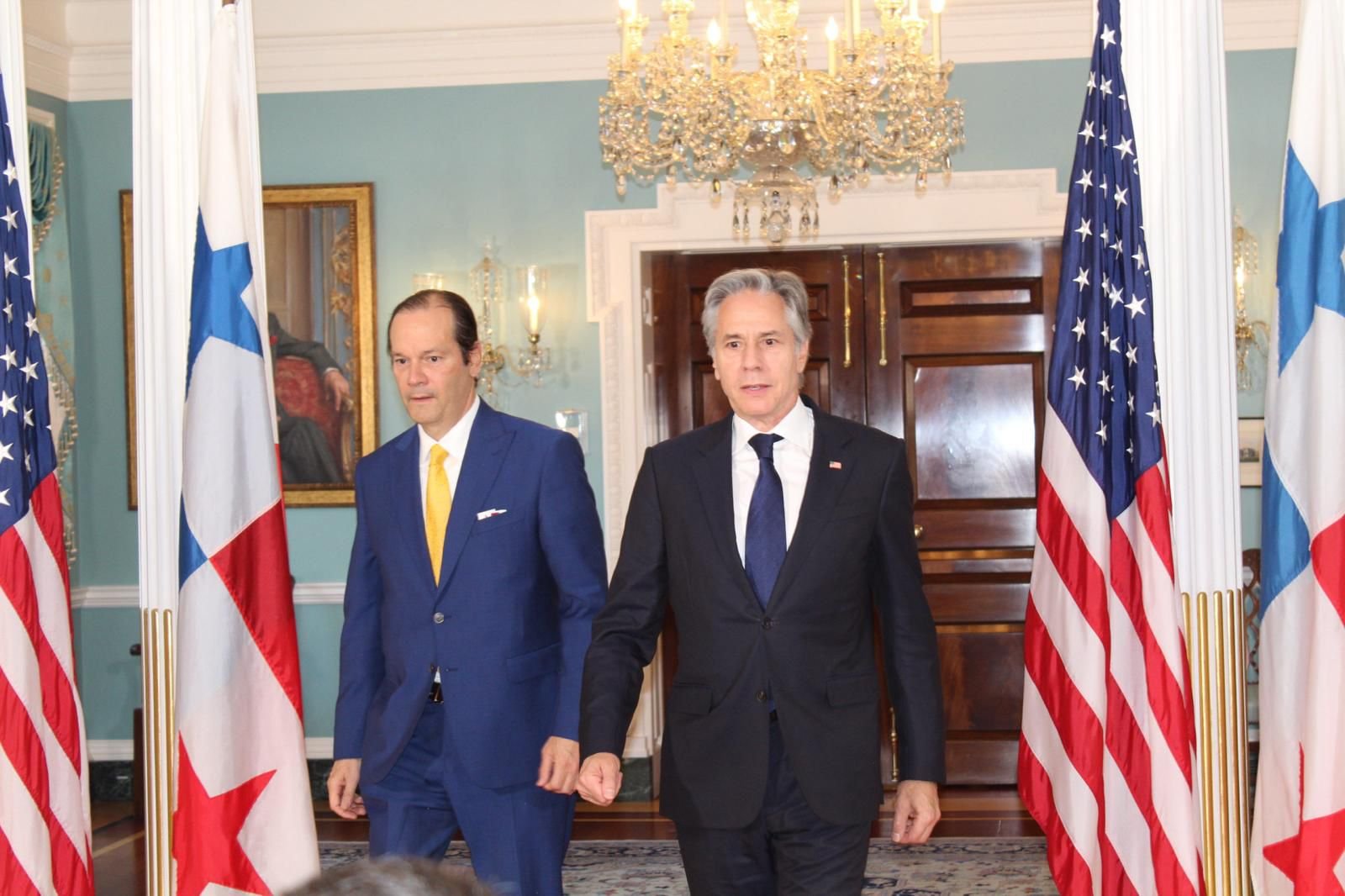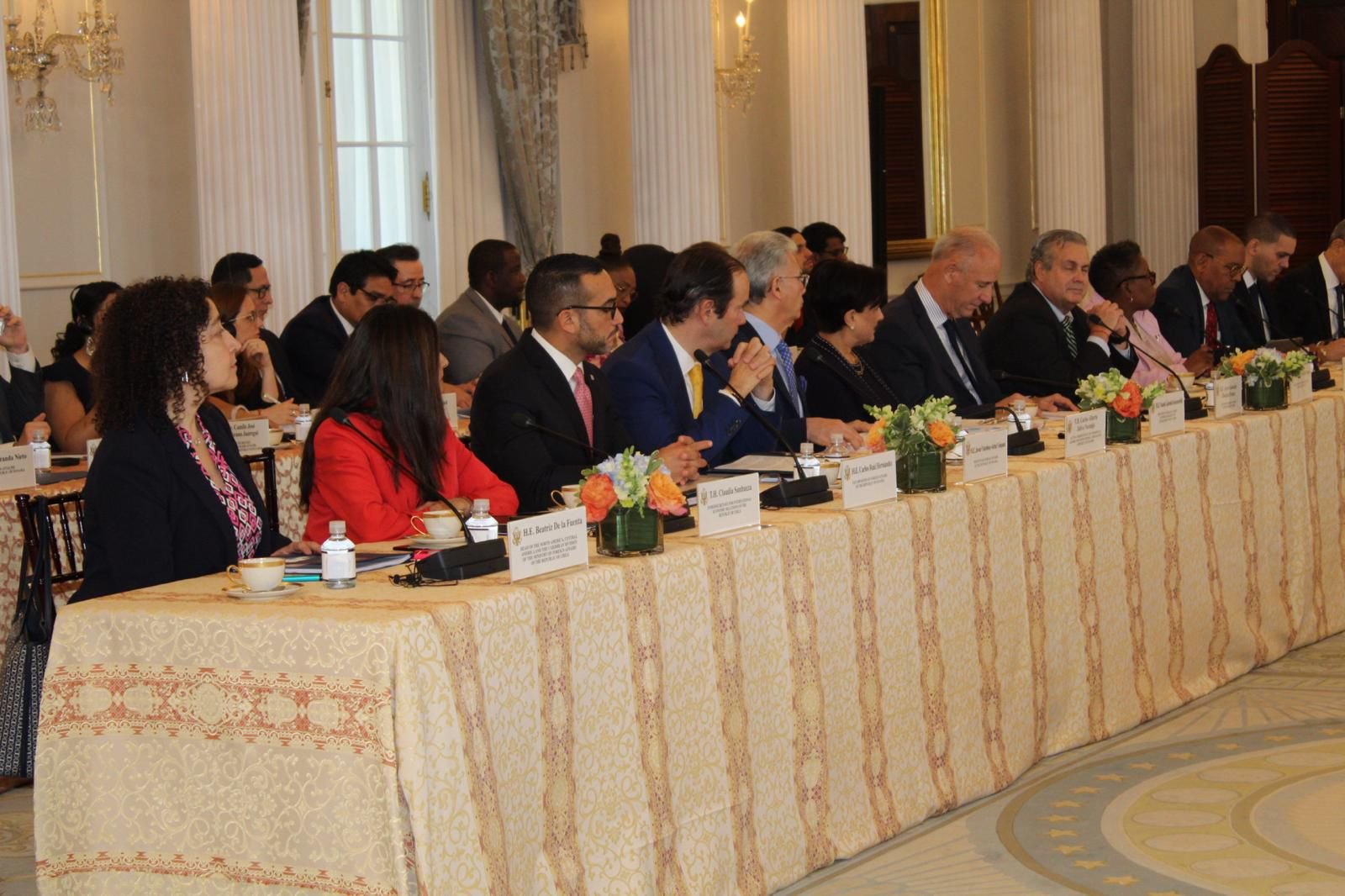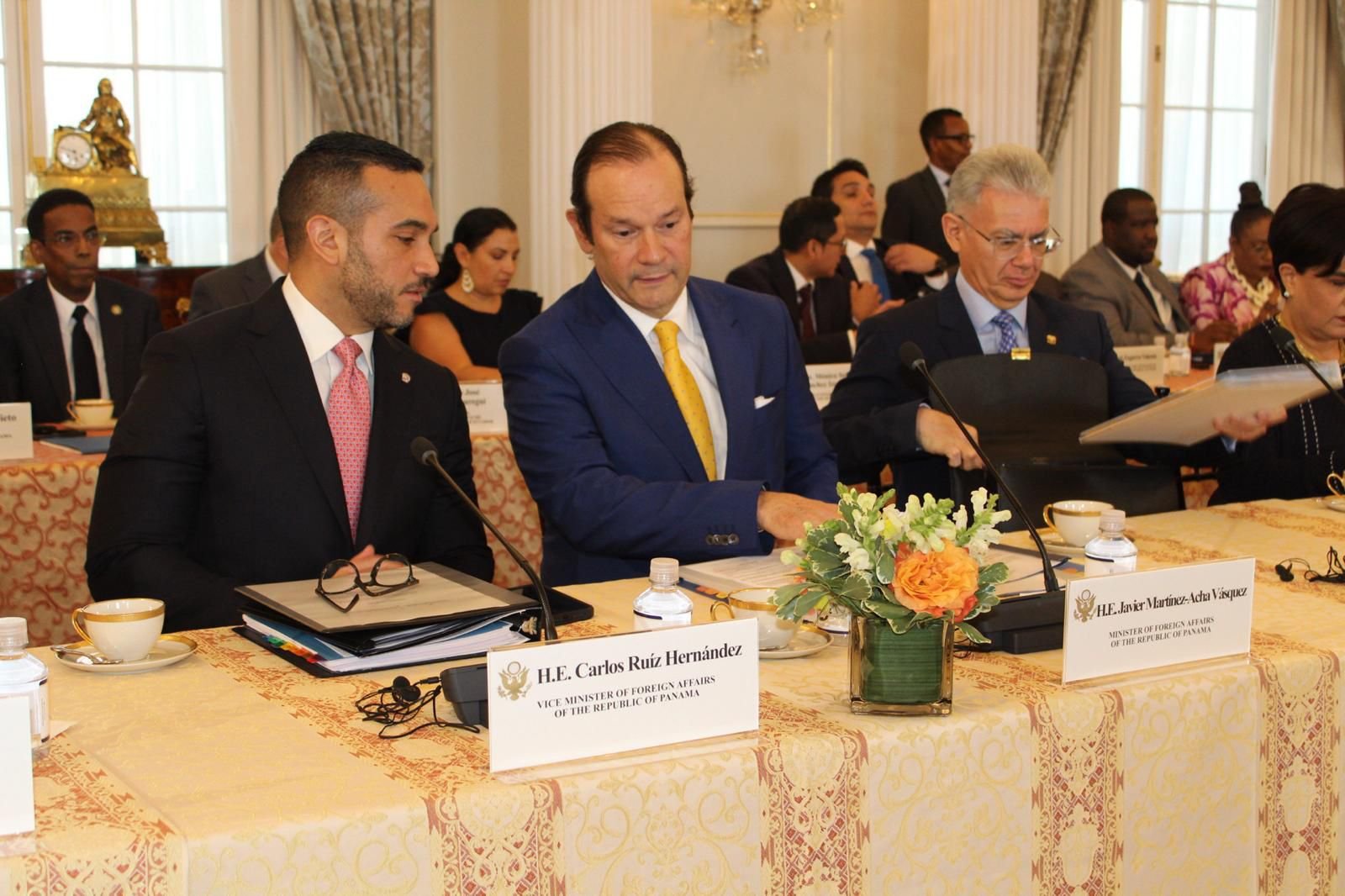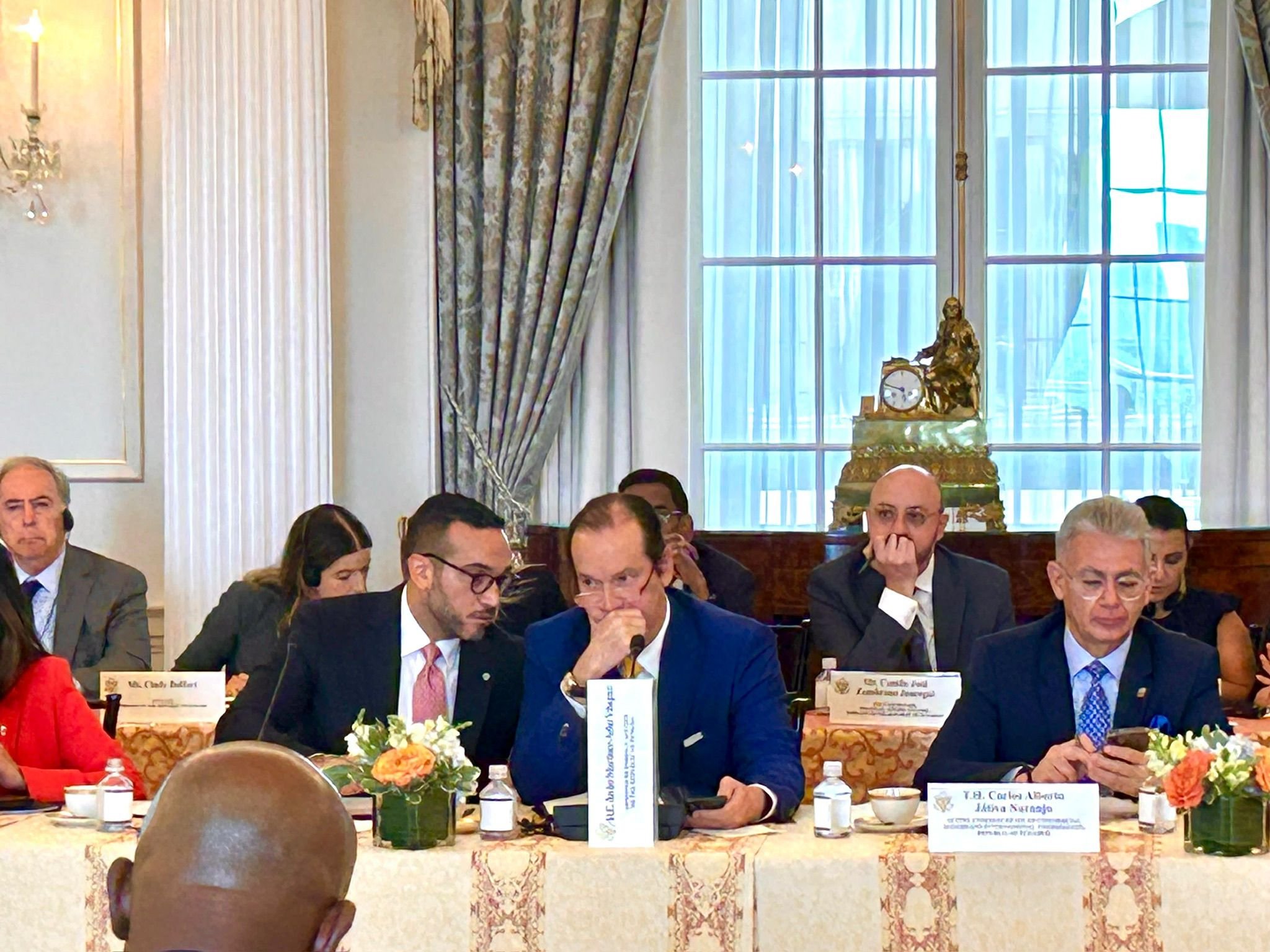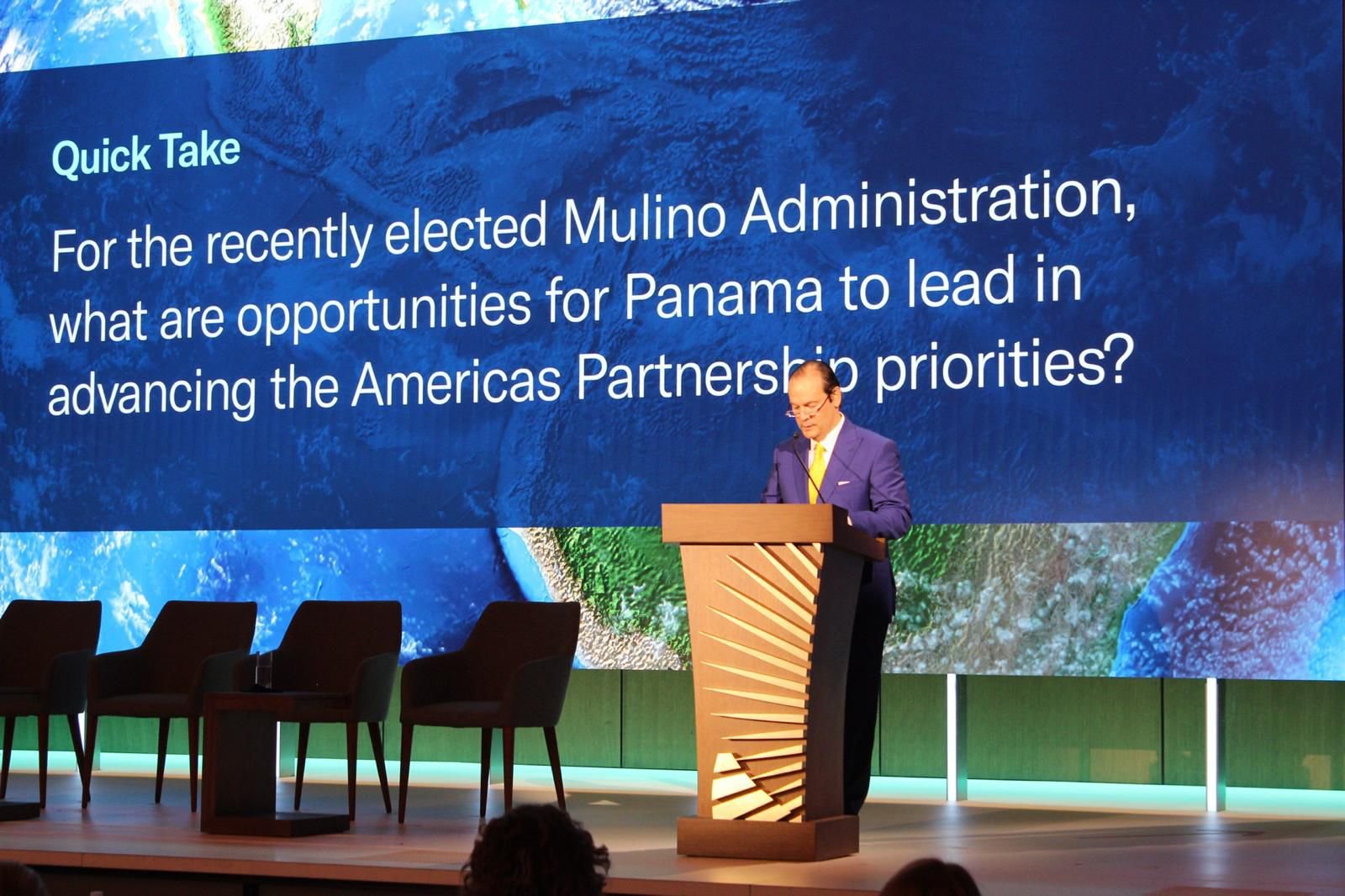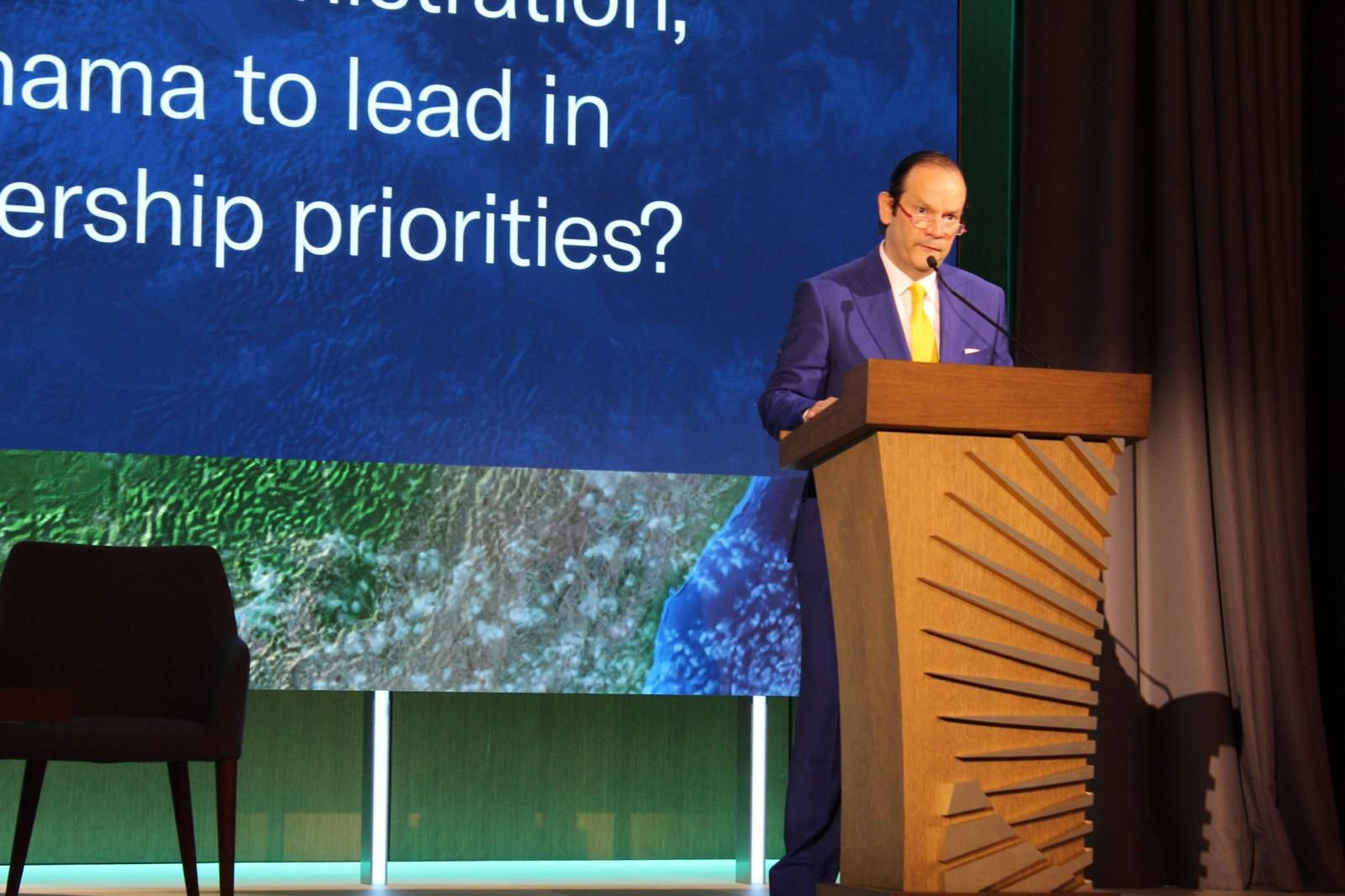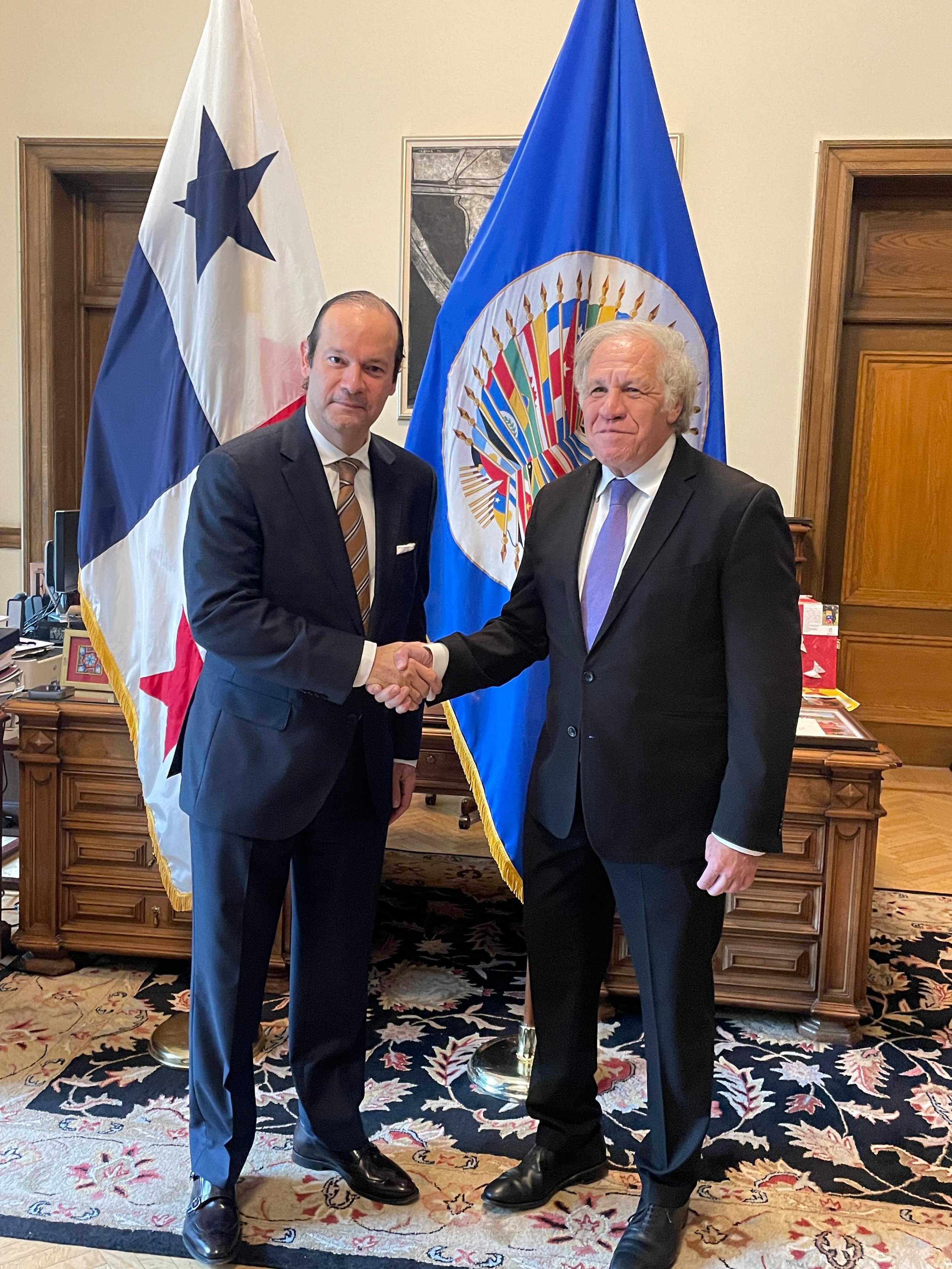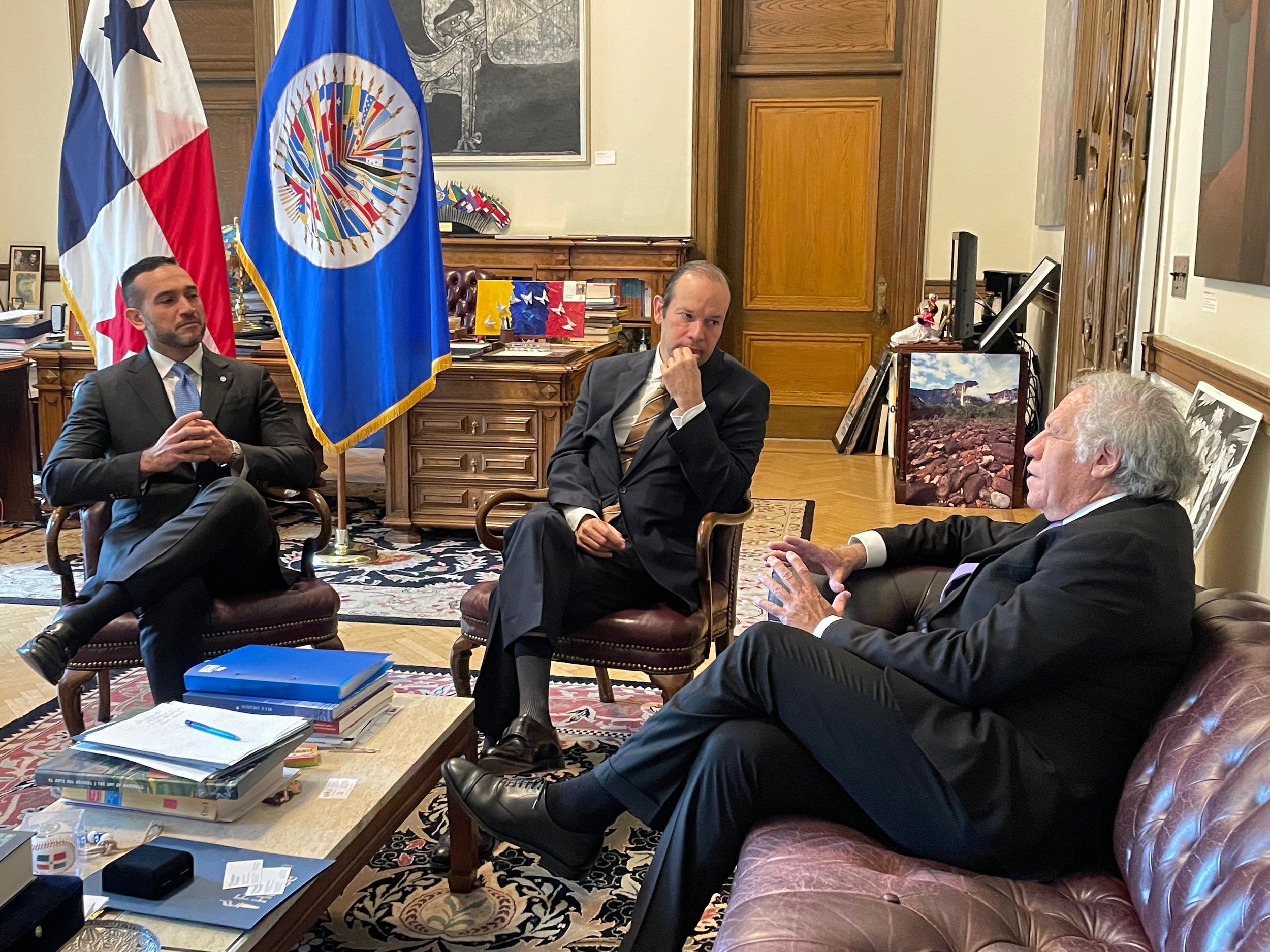Panama Joins the Artemis Accords
Panama Joins the Artemis Accords with NASA
Bill Nelson, NASA’s Administrator. José Miguel Alemán, Ambassador of Panama to the U. S. Tony Fernandes, Principal Deputy Assistant Secretary Department of State’s Bureau of Oceans and International Environmental and Scientific Affairs.
Panama becomes the 49th country and the first in Central America to join the Artemis Accords, a milestone for the nation that opens new opportunities in social, economic, environmental, scientific, and technological fields.
NASA Administrator Bill Nelson has announced an official visit to Panama scheduled for mid-January 2025.
Washington, D.C., December 11, 2024 – The signing took place during a formal ceremony at NASA Headquarters in Washington, D.C., with the participation of Panama's Ambassador to the United States, José Miguel Alemán, representing the Panamanian government, and NASA Administrator Bill Nelson. This international cooperation agreement enables Panama to participate in the peaceful research and exploration of space, including the Moon and Mars, in collaboration with NASA.
“Today, Panama takes its place among many other nations looking not just to our own horizons, but to the horizons beyond our planet – exploring, learning, and contributing to humanity’s collective knowledge,” said Ambassador Alemán during the signing ceremony.
"NASA is proud to welcome Panama to the Artemis Accords as we expand the peaceful exploration of space to all nations," said NASA Administrator Bill Nelson. "From 1966 to 1973, the Panama Canal played a pivotal role in advancing space exploration by facilitating the transit of large NASA components destined for the International Space Station. That cooperation continues today, and a NASA exhibit in January 2025 at Panama's most visited museum, the Biomuseo, will highlight the United States' achievements in space and their benefits for all humanity, along with their connection to Panama," Nelson emphasized.
Space technologies derived from exploration can be applied to address terrestrial challenges, such as climate change, natural resource management, and disaster prevention. In Panama, these tools will have a direct impact on meteorology, water management, and biodiversity monitoring.
Panama’s accession to the Artemis Accords reflects an innovative foreign policy that promotes the nation’s development through scientific diplomacy.
The leadership of Dr. Mario Morales-López (RIP), First Secretary of the Diplomatic Career, played a fundamental role in managing and promoting Panama’s adherence to these agreements. Through his scientific diplomacy portfolio, he garnered interest and commitment from both parties, making this significant step a reality. His vision and dedication brought relevance to this achievement, setting a significant precedent for the country in the realm of international scientific collaboration.
The Accords will encourage research and the development of specialized educational programs in space sciences and STEM disciplines, strengthening capacities in fields such as aerospace engineering, robotics, and remote sensing. They will also foster the creation of research infrastructure and academic mobility, positioning Panama as a hub for knowledge exchange and best practices.
From an economic perspective, Panama’s geographic position makes it a strategic link in the global supply chain for space missions. This could attract investments from technology companies, generate highly qualified jobs, and foster innovation through startups. Additionally, existing legal frameworks and infrastructure, such as the Panama Pacifico Special Economic Area, facilitate the establishment of cutting-edge industries.
The signing of the Accords also reinforces Panama’s leadership on the international stage. Through Artemis, Panama will gain access to high-level dialogues and strengthen its cooperation with the United States and other signatory countries.
About the Artemis Accords
The Artemis Accords were initially signed in 2020 by the United States, Australia, Canada, Japan, Luxembourg, Italy, the United Kingdom, and the United Arab Emirates. Since then, numerous countries have joined, with Panama and Austria being the most recent signatories. Today, we are part of the 50 countries committed to these agreements.
Promoted by NASA and the U.S. Department of State, the Artemis Accords establish principles for the peaceful and sustainable exploration of outer space, including the Moon, Mars, comets, and asteroids. Rooted in the values of the 1967 United Nations Outer Space Treaty, the Accords foster international cooperation in areas such as astronaut assistance, space debris mitigation, and the interoperability of space systems, among others.
Ambassador José Miguel Alemán Presents Credentials to President Joe Biden
Washington, D.C. - José Miguel Alemán, Ambassador of the Republic of Panama to the United States, officially presented his credentials to President Joe Biden during a special ceremony held at the White House. With this, Alemán becomes Panama's top diplomatic representative to the U.S., assuming the role of Ambassador Extraordinary and Plenipotentiary.
During the meeting, President Biden and Ambassador Alemán reaffirmed the strong friendship ties that have united Panama and the United States for over a century. Alemán expressed his gratitude to President Biden for his past support and favorable vote for the Torrijos-Carter Treaties, the historic agreement that facilitated the transfer of the Panama Canal to Panamanian jurisdiction. At the time, Biden, serving as U.S. Senator from Delaware, cast his vote in favor of the treaties.
In the course of the meeting, Ambassador Alemán reiterated his commitment to "work tirelessly to strengthen the relationship" between Panama and the United States, emphasizing the countries' shared "democratic principles and respect for human rights."
President Biden warmly welcomed Ambassador Alemán, accompanied by his wife, Vicky Dutari de Alemán. They expressed their gratitude for the attention and courtesy extended by the U.S. President during the ceremony.
This event marks a significant milestone in the ongoing diplomatic partnership between Panama and the United States.
Mulino and Biden Commit to Deepening Ties Between Panama and the United States
President José Raúl Mulino and U.S. President Joe Biden held a telephone conversation today in which they addressed various topics, including the crisis in Venezuela, the situation of illegal immigration through the Darién, and Panama's role as a strategic ally in the region.
Biden described President Mulino as a "top partner" of the United States” and highlighted the Panamanian leader's "outstanding" role in the region.
Mulino and the U.S. President spoke for approximately 11 minutes this afternoon in a phone call. During the call, they also committed to exploring a joint solution to the ongoing crisis in Venezuela.
In this context, Biden acknowledged Panama's leadership and President Mulino's efforts in seeking a solution to the Venezuelan crisis while expressing gratitude for Panama's role in the dialogue between the Organization of American States (OAS) and the United Nations.
"Panama has a very large historical debt with Venezuela," Mulino recalled to his U.S. counterpart, referring to Panama's active role in seeking a solution to the institutional crisis in the South American country.
Additionally, Biden committed to initiating the implementation of the agreement in August. This will include repatriation flights for migrants arriving in Panama through the Darién jungle. According to the memorandum of understanding signed between the two countries, the United States will cover the financing.
Biden said that the United States is "ready" to implement the agreement, which—Mulino added—will be carried out with respect for human rights and the dignity of individuals.
Biden and Mulino agreed to maintain direct communication between the White House and the Palacio de las Garzas.
Cultural Diplomacy: Vice Minister Guevara Mann Visits the Hispanic Reading Room at the Library of Congress
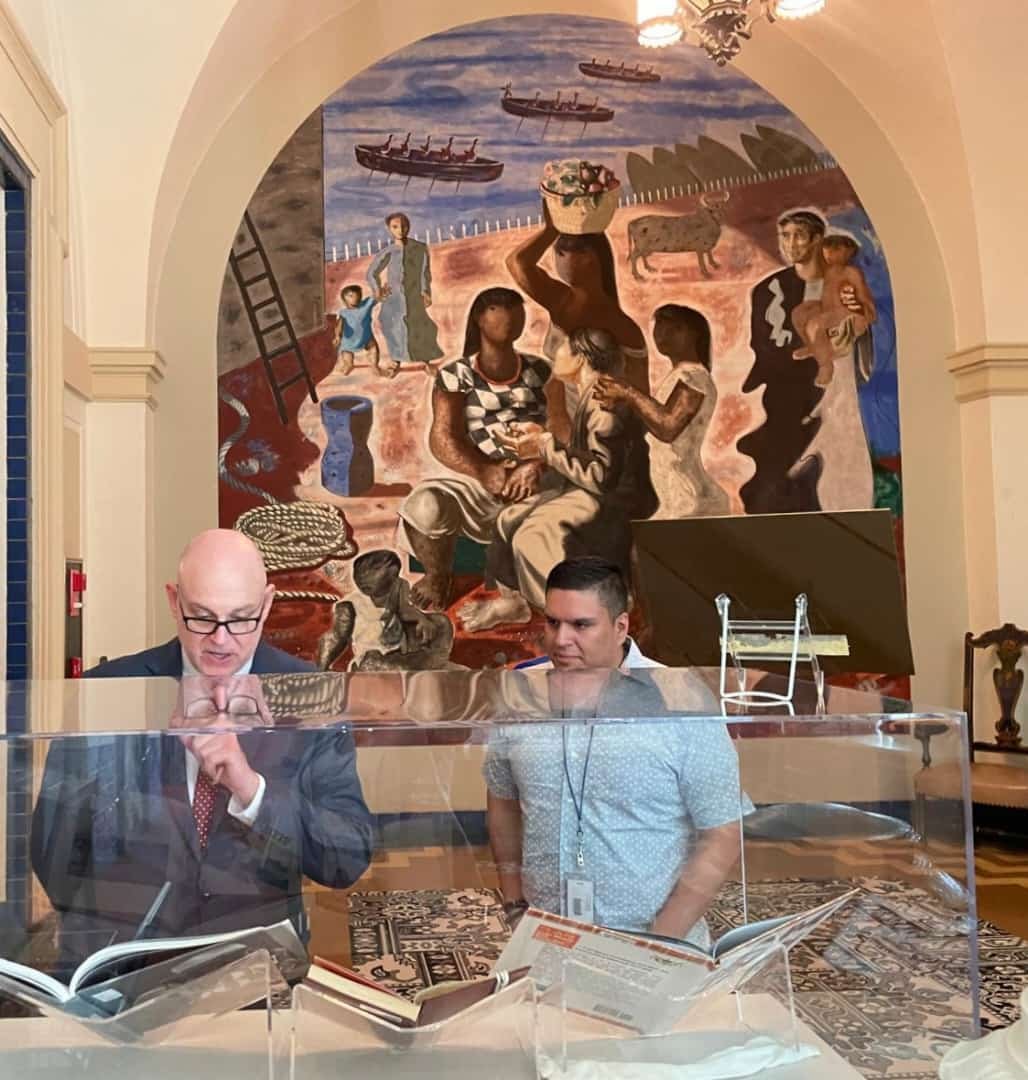
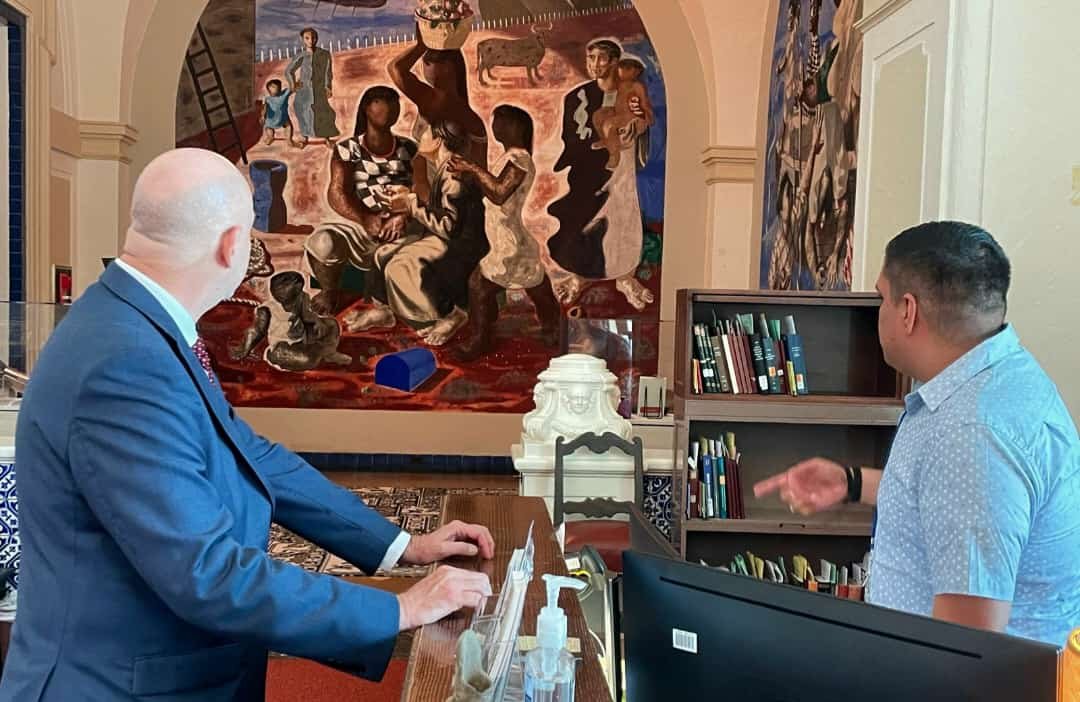
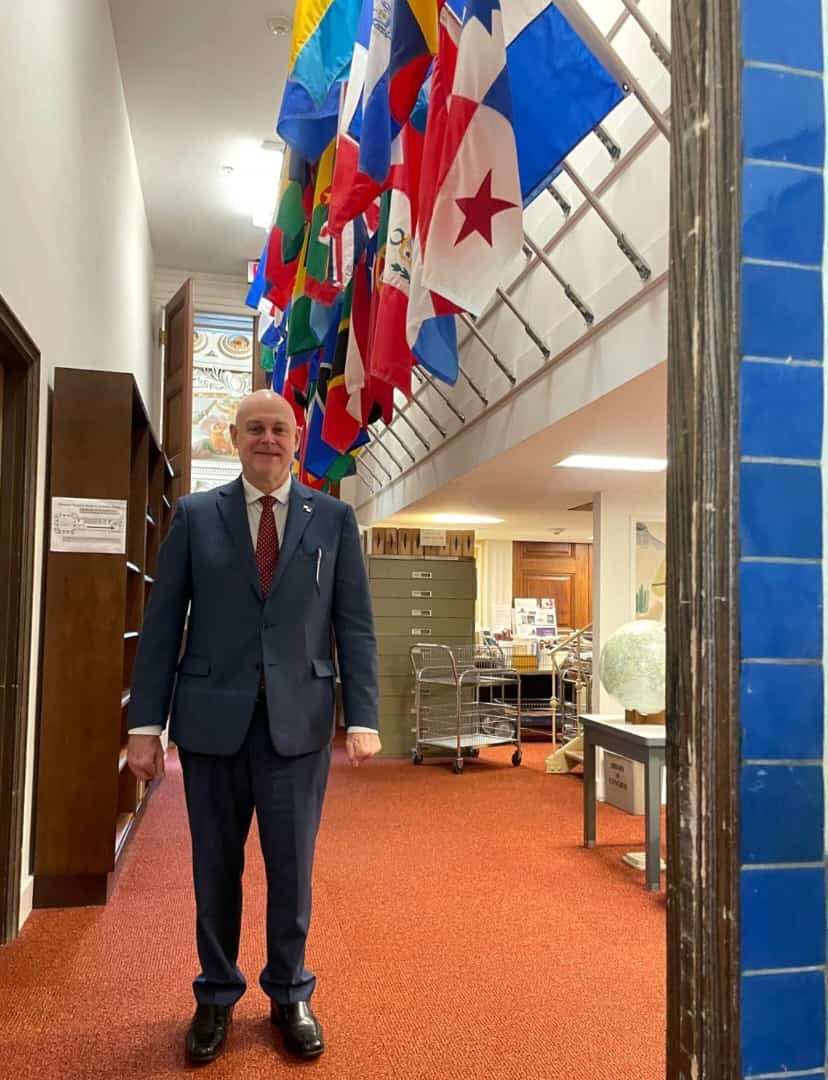
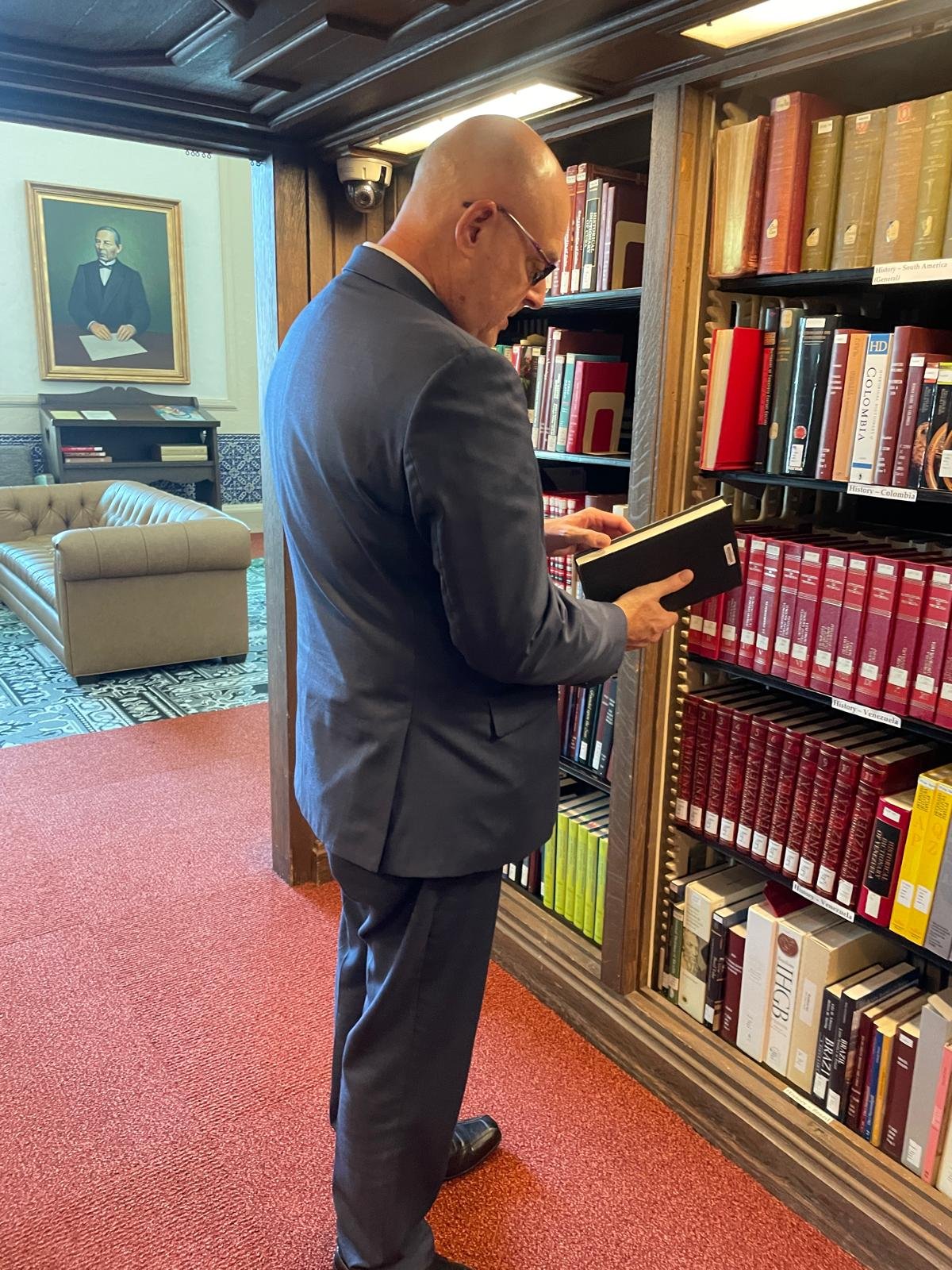
The Vice Minister of Multilateral Affairs and Cooperation, Carlos Guevara Mann, visited the Hispanic Reading Room at the Library of Congress in Washington, D.C., which houses an extensive and significant collection of materials, books, and documents from countries in the region.
The Hispanic Reading Room is an ideal resource for cultural diplomacy, an area of action coordinated by Dr. Guevara Mann at the Panamanian Ministry of Foreign Affairs.
Panama Reaffirms Its Strong Position on Venezuelan Elections at the OAS
The Republic of Panama voted in favor of the Draft Resolution of the Permanent Council of the Organization of American States (OAS), which met in Washington to discuss the Venezuelan elections held on July 28, 2024.
The document, which received 17 votes in favor, 11 abstentions, and five absences, recognizes Venezuela's electorate's substantial and peaceful participation in the elections held on July 28, 2024.
In response to this outcome, Panama's Minister of Foreign Affairs, Javier Martínez-Acha Vásquez, expressed his "hope that none of those present here… will have to flee their country because one person and their gang want to monopolize power forever, as that would mean we are not citizens but slaves."
The Panamanian Foreign Minister reiterated the position of the National Government, led by President José Raúl Mulino Quintero, in support of democracy in Venezuela as an inalienable right of the Venezuelan people. Therefore, he demanded that "the ballots be reviewed in the presence of the opposition, that the votes cast be counted and respected, and that it be known exactly how Venezuelan men and women voted on July 28." Additionally, he called for the respect of human rights in Venezuela and an end to the persecution of opposition leaders and activists.
Wednesday, July 31, 2024
PANAMA PRESENTS RISC DATABASE TO THE UNITED STATES OF AMERICA
The Chargé d'Affaires of the Embassy of Panama in Washington D.C., Mario Morales López, and the CEO of the Liberian Registry, Alfonso Castillero, participated in the launch of the shared database of the Registries Information Sharing Compact (RISC).
This database was presented to the Office of International Security and Nonproliferation (ISN) of the U.S. Department of State, represented by Gonzalo Suárez, Deputy Assistant Secretary of that office.
Panama is a founding member of this compact along with the registries of Liberia and the Marshall Islands, which was signed on August 14, 2019. The RISC represents a step forward in enforcing sanctions against vessels engaging in behavior contrary to the interests of the international maritime community.
Currently, RISC is composed of the registries of Palau, Honduras, St. Kitts and Nevis, Comoros, Vanuatu, the Cook Islands, Dominica, Moldova, and Belize, in addition to its three founding members.
The establishment of this database by the RISC member registries aims to reduce flag-hopping operations of vessels involved in sanction evasion activities.
Under this international agreement, when a flag registry begins a sanction process against a vessel, cancels a registration, or denies the registration of a vessel due to a sanctionable activity, that office will immediately notify the other members of the details of the vessel. A description of the sanctionable activity will also be included to share the identity of vessels, companies, or groups engaging in these illicit practices.
Since Panama signed this compact, it has reported over 135 vessels. The Panamanian Registry, as part of its due diligence process, includes a review of this database to ensure that it does not accept under its flag vessels linked to illicit activities or suspected of sanctions violations, which are undergoing cancellation processes within other RISC member registries.
PRESIDENT MULINO AND SOUTHCOM COMMANDER DISCUSS VENEZUELA CRISIS, MIGRATION, AND SECURITY
The democratic crisis in Venezuela, the flow of migrants through the Darien jungle, and the constant threat of drug trafficking and organized crime were the topics discussed this Tuesday by the President of the Republic of Panama, José Raúl Mulino, and the Commander of the U.S. Southern Command, General Laura Richardson.
The meeting took place at the Palacio de las Garzas. President Mulino took advantage of the presence of General Richardson and the U.S. Ambassador to Panama, Mari Carmen Aponte, to propose joint hemispheric cooperation on an initiative involving 17 Latin American countries to address the crisis in Venezuela, seek a peaceful solution to the conflict in that nation, and strengthen regional security.
The invitation to the presidents and heads of state was announced this Tuesday by President Mulino during his speech at the Regional Security Summit.
Due to the fact that 60% of migrants passing through the Darien jungle are Venezuelans fleeing the humanitarian crisis in their country, Mulino described the situation as a humanitarian drama of immeasurable proportions. He also highlighted the vulnerability of men, women, and children crossing the border between Panama and Colombia and called for hemispheric cooperation, including that of the United States.
General Richardson and Ambassador Aponte expressed concern about the instability in the region caused by the migration crisis and reaffirmed the importance of Panama as a strategic hub.
Finally, they expressed their willingness to make important investments that would help ensure the democratic sustainability of Panama and the region.
FOREIGN MINISTER MARTÍNEZ-ACHA VÁSQUEZ MEETS WITH SECRETARY OF STATE AND PARTICIPATES IN THE AMERICAS ALLIANCE MEETING
Washington, DC, July 17. Foreign Minister Javier Martínez-Acha Vásquez is on an official mission in the United States today. He met with Secretary of State Antony Blinken to discuss topics from the historic bilateral agenda that renewed momentum since President José Raúl Mulino's administration began. Deputy Foreign Minister Carlos Ruíz Hernández accompanied the minister.
During the diplomatic meeting, the Secretary of State congratulated the Panamanian Foreign Minister on his appointment as Minister of Foreign Affairs by President José Raúl Mulino. He also took the opportunity to commend Panama on its election as a non-permanent member of the United Nations Security Council (2025-2026).
The Foreign Minister and the Secretary of State discussed a wide range of shared interests, including promoting inclusive economic growth, governance, and democratic values, managing migration humanely, and combating drug trafficking.
Both diplomats emphasized cooperation to create conditions for a safer and more prosperous future for both countries and the region. They reaffirmed the importance of the partnership between the United States and Panama. They highlighted the significance of the Memorandum of Understanding signed on July 1 to support Panama's efforts to safely and humanely repatriate irregular migrants who do not have a legal basis to remain in the country.
In Washington, the Head of Panamanian Diplomacy also participated in the Ministerial Meeting of Foreign Affairs of the Partnership for Economic Prosperity in the Americas ("Americas Alliance"), convened by the State Department. During the meeting, along with colleagues from other member countries—United States, Barbados, Canada, Chile, Costa Rica, Colombia, Ecuador, Mexico, Peru, Dominican Republic, and Uruguay—they discussed ongoing collaboration to harness the hemisphere's potential to foster inclusive, sustainable and shared prosperity for all.
In this context, Foreign Minister Martínez-Acha Vásquez emphasized that Panama is committed to leadership in this effort. “The Partnership for Economic Prosperity in the Americas is our opportunity to work together for a better future. Panama is committed to this initiative and ready to leverage our advantages to enhance regional cooperation and economic growth.”
“With its strategic location and strong economic infrastructure, Panama is uniquely positioned to play a fundamental role in this narrative of integration and prosperity,” added the Panamanian Foreign Minister, highlighting the importance of the Partnership for Economic Prosperity in the Americas (APEP).
During the meeting, representatives from the 12 member countries of the Americas Alliance reviewed the progress of commitments made last year during the inaugural summit of this initiative proposed by the United States to deepen economic integration, create well-paying jobs, and promote competitiveness, resilience, and innovation in the Western Hemisphere.
The Panamanian diplomatic authorities in Washington's agenda also includes participating in a meeting of the United States Chamber of Commerce, the launch of the Americas Partnership Investors Network, a roundtable with investors and entrepreneurs committed to Latin America and the Caribbean, and a meeting with Luis Almagro, Secretary-General of the Organization of American States.
Panama and the United States Sign Memorandum Against Illegal Immigration
Panama and the United States formally signed the Memorandum of Understanding on Assistance and Cooperation in Migration Matters, which will help prevent the passage of illegal immigrants through the Darién, an issue that has become a serious humanitarian crisis.
In the agreement signed today by Panamanian Foreign Minister Javier Martinez-Acha and the U.S. Secretary of Homeland Security Alejandro Mayorkas, the U.S. government committed to covering the costs of repatriating immigrants who enter illegally through the Darién.
"Supporting Panama with equipment, transportation, and logistics for foreigners detected within migratory flows in contravention of Panama's immigration laws (hereinafter, 'irregular migratory flows'), who will be subject to migratory administrative measures in accordance with Panamanian law," states the Memorandum of Understanding signed by the United States.
Meanwhile, Panama committed in the agreement to comply with all international agreements and conventions on the rights of immigrants and those in refugee status.
Panamanian President José Raúl Mulino is committed to resolving the Darién crisis and ending the illegal business of human trafficking.

